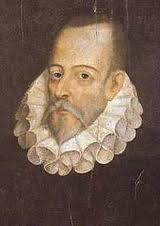Hello everybody!!
Today, at the begining of the lesson Paqui has given to the people who has repeated their projects, she has given their marks, only a group has failed and this group is going to have a part of Renaissance art in their exams.
After that, we have reviewed the part of demography, economy and society in which we have learned that population decreased due to bad harvests, wars, migration to the Indies and the expulsion of the Moorish. Due to this, an economic recesion started, but also for negative political decisions, inefficient farming tecniques and competition for cheaper and better quality products. About society we have learned that as nobility was the main social model, people started to think that manual work was considered shameful and dishonest.
The conclussion about that, is that people wanted to live without working and Paqui has told us that this continues to happens nowadays and she give us the example of Belén Esteban.
Source: http://www.eldebat.cat/
After this she has asked us to raise our hands if : If we were rich , would we continue working? Only five of us have raised their hands.
She has told us also that when a new king arrived to the peninsula from Napples, Charles III, he had to issue a law saying that manual work is not dishonest, but even whith this law, people continued to think that it was.
Later we have started with the point c, about culture and art in the 17th century .We have copied as a chronologic scheme about the Middle Ages and the Modern Era, it is about the secularization process (the progressive liberation of knowledge from religion):
In the Middle Ages religion stopped the progress of science and thinking ,then on the 15th and 16th centuries, during the Humanism, human beings became center of interest and scholars tried to separate thinking from religion and the Protestant Reformation started. After that ,in the 17th century the Scientific Revolution started and about this we have to define two concepts: Empiricism and rationalism .
We have also learned that the 17th century was the golden age for literature
We have also decided the date for the exam that will be next friday .
We have added some new words in the glossary :
Survey- encuesta
The swidler- El buscón
Rogue- pícaro
Schdar- sabio, erudito
We have added some new words in the glossary :
Survey- encuesta
The swidler- El buscón
Rogue- pícaro
Schdar- sabio, erudito
And that was all we have done today .
source:http://www.classicspanishbooks.com/img/gallery/cervantes.jpg
(Miguel de Cervantes belongs to the golden age)
BYE!!

